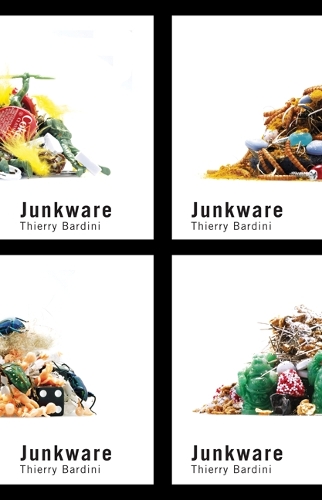
Junkware
(Paperback)
Publishing Details
Junkware
By (Author) Thierry Bardini
University of Minnesota Press
University of Minnesota Press
22nd March 2011
United States
Classifications
General
Non Fiction
Electronics engineering
621.381
Physical Properties
Paperback
328
Width 140mm, Height 216mm, Spine 20mm
Description
Are we made of junk Thierry Bardini believes we are. Examining an array of cybernetic structures from genetic codes to communication networks, he explores the idea that most of culture and nature, including humans, is composed primarily of useless, but always potentially recyclable, material otherwise known as "junk." He draws on a wide variety of sources, including the writings of Philip K. Dick and William S. Burroughs, interviews with scientists as well as "crackpots," and work in genetics, cybernetics, and physics to support his contention that junk DNA represents a blind spot in our understanding of life.
Reviews
"This book is thrilling. No other book takes the problem of junk (and especially junk DNA) so seriously; no other book takes the question of what molecular biology has done to us so thoroughly. Thierry Bardinis answer is that we have literally become junkHomo Nexus. In the age of genetic capitalism, weve moved beyond Deleuzes societies of control and into an age of infinite repurposing. At the very moment that many are celebrating remix culture Bardini's book provides a wild and weird wake-up call. We are junk, junk is us. Junkware will help us sort it out." Christopher Kelty, author of Two Bits: The Cultural Significance of Free Software
"Awakening us to the awe-ful splendor of an informatic planet crawling with self replicating junkware, Professor Bardini joins a global cadre of interdisciplinary ecologists engaging with the digital evolution and development of living systems: Techno-Evo-Devo. Bardinis inquiry owes as much to Woody Allen as it does to Gilbert Simondon, asking: Are we made of junk In the tradition of Darwin's contemplation of an entangled bank of interconnected life, Junkware beholds a planet transduced by the self replicating infoquake and a Dionysian festival of junk. Long may it replicate." Richard Doyle, Penn State University
Author Bio
Thierry Bardini is professor of communication at the University of Montreal.
